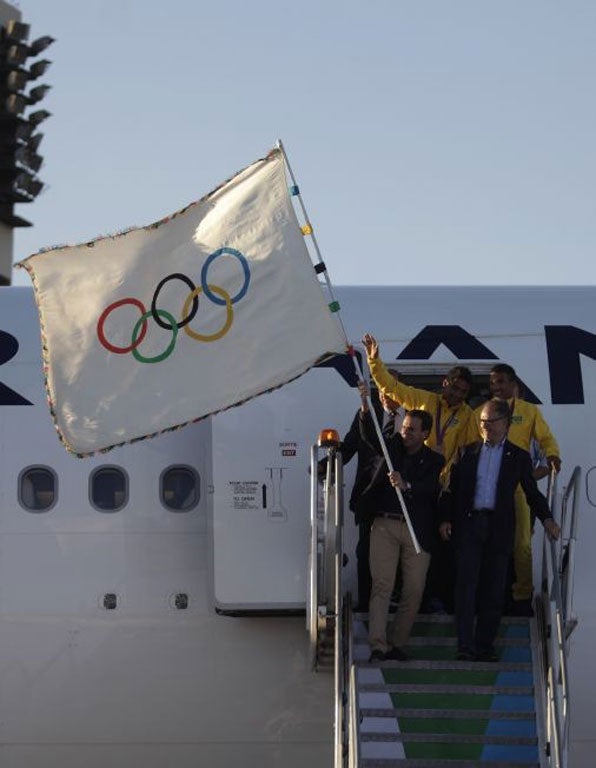Olympic flag touches down on Brazilian soil

The Olympic flag touched down on Brazilian soil, marking the start of four years of preparations ahead of the 2016 games in Rio de Janeiro.
Rio mayor Eduardo Paes waved the five-ringed flag as he and other officials disembarked from the flight that brought them back from London, where they attended the Games' closing ceremony on Sunday.
Speaking at a packed news conference at Rio's Tom Jobim international airport, Mr Paes called it an "important moment" for Rio and for Brazil at large.
He promised the Games would leave a vast legacy for Rio, the beachside metropolis that suffered from decades of neglect after it lost national capital status to Brasilia in 1960.
"I see the arrival of this Olympic flag as not the start, but the consolidation of an important process of transformation for the city of Rio de Janeiro," he said.
"Rio is a city that spent the lion's share of its history, much more time than it should have, looking towards the past. I'm sure that this process of transformation, this turning toward the future, has been consolidated here."
Mr Paes said the most important effects of the Olympics "are sometimes, many times, the intangible transformations, the impalpable ones related to the brand of a country, the brand of a city, with the self-esteem of a country".
But a handful of demonstrators gathered outside the airport to protest against expulsions connected with Olympic projects and others tied to the 2014 soccer World Cup, which Brazil is also hosting.
The Popular Committee for the World Cup and Olympics, which organised the protest, says as many as 170,000 people risk being removed from their homes, or already have been removed, due to projects related to the two mega-events.
The group says some 4,000 people living in the so-called Vila Autodromo, where the Olympic Park is to be built, are facing expulsion. Activists have complained of a lack of consultation between the government and the affected communities and also of low compensation paid out to those kicked out of their homes.
Asked about the government's plan was for the residents of Vila Autodromo, Mr Paes said nothing would be done without extensive consultations.
"No-one is going to throw anyone out of anywhere ... without there being an alternative," he said. "The people will only leave there with lots of consultations, with lots of discussion, with lots of respect."
He added that some of those opposed to the evictions were people "who are always railing against the government. That's why things were paralysed for so long. They don't want anything to happen here".
The Olympic flag, made out of silk for the 1988 games in Seoul, South Korea, will be temporarily housed in the City Hall and will be open to viewings by visitors.
AP
Join our commenting forum
Join thought-provoking conversations, follow other Independent readers and see their replies
Comments
Bookmark popover
Removed from bookmarks